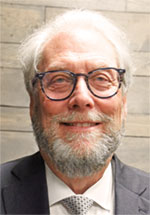Our Works of Charity / David Bethuram
Catholic Charities helped young mother break the cycle of poverty

At Catholic Charities, our mission is to break the cycle of poverty through comprehensive, person-centered programming. Poverty isn’t solved by addressing a single crisis—it takes a holistic approach that meets individuals and families where they are, supporting them through every step toward stability and hope.
As of 2025, the federal poverty level (FPL) in Indiana is set at $15,650 per year for an individual and $32,150 annually for a family of four. These thresholds are used to determine eligibility for various forms of public assistance and reflect the minimum income needed to cover essential living expenses.
According to data from the United Way of Indiana, approximately 13% of households in the state earn income below the FPL, placing them in poverty. Beyond that, an additional 27% of households fall into a category often referred to as ALICE—asset limited, income constrained, employed. These are working households that earn above the poverty line, but still struggle to afford basic necessities such as housing, child care, food, transportation and health care within the communities they live.
Combined, these figures indicate that 40% of Indiana households face financial hardship, underscoring a widespread challenge in meeting the cost of living despite employment.
Let me introduce to you an incredible woman named Amanda—someone who has lived through poverty and now works every day to rise above it.
Amanda grew up surrounded by hardship. She remembers the smell of mold and mildew clinging to her clothes and belongings, watching as her most cherished items were ruined by the dampness.
She remembers living in houses with no heat or hot water, her stepfather wrapping duct tape around broken heater cords in a desperate attempt to keep them warm. It was a fire hazard—but in those moments—warmth mattered more than safety. Still, they were cold.
Her childhood homes rarely had a working kitchen. Her mother cooked meals at her grandparents’ house and brought them back to wherever they were staying. Running water was often unavailable, and unsanitary conditions were the norm. She and her siblings would bathe at their grandparents’ house because there was no other option. Amanda says, “When you grow up like this, you think it’s normal. And then the cycle continues.”
Food was scarce. They didn’t starve, but hunger was constant.
Today, Amanda describes herself as “somewhat of a food hoarder,” always afraid she won’t have enough to feed her daughter. Though her circumstances have changed, the fear remains.
“I’m in my 30’s now, and I’m still haunted by the trauma and food insecurity,” she says. “The scars run long and deep.”
But Amanda didn’t let her past define her future. As a teen and young adult, she found support through Catholic Charities. She wasn’t shaped by the expectation that poverty would always be her reality. Instead, Catholic Charities helped her see that while she couldn’t rewrite her past, she could shape a new future.
Today, Amanda is far from the mold, the cold and the hunger of her childhood. While the trauma hasn’t disappeared, it no longer defines her. It fuels her. She’s a devoted mother, working hard to ensure her daughter has more opportunities than she did.
“Catholic Charities helped me take what I saw and experienced as a child,” she says, “and use it to become a better person—for myself, my family, and for others who are living through the trauma of poverty.”
Amanda’s journey is a powerful reminder that healing is possible, and that with the right support, cycles can be broken—one life, one family at a time.
(David Bethuram is executive director of the archdiocesan Secretariat for Catholic Charities. You can contact him at dbethuram@archindy.org.) †
